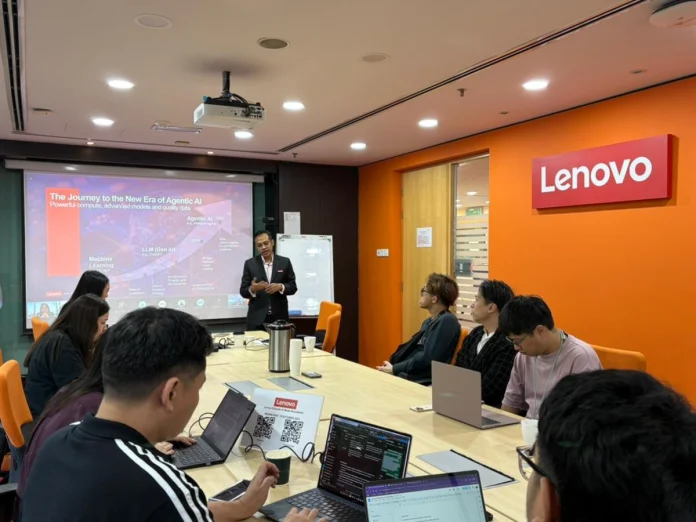ARTIFICIAL intelligence (AI) is becoming a key driver of productivity and innovation in Malaysia as both public and private sectors move to expand hybrid AI infrastructure and develop digital skills across industries.
At an AI Education Media Roundtable held by Lenovo Malaysia in Kuala Lumpur, regional technology experts discussed how a hybrid AI framework, which combines personal, enterprise and public models, could accelerate Malaysia’s progress toward becoming an AI-ready nation by 2030.
Lenovo Solutions and Services Group executive director and general manager for Asia Pacific Fan Ho said AI is no longer confined to the technology sector but is reshaping how organisations and consumers interact with data and devices.
“Hybrid AI defines this era. We see a future where personal, enterprise and public AI models co-exist to support better outcomes for organisations,” she said.
According to Lenovo’s Chief Information Officer (CIO) Playbook, 83% of CIOs across Asia Pacific are already using or planning to use AI professional services, reflecting the region’s rapid pace of digital transformation.
The discussion also highlighted how hybrid AI allows data to be processed across cloud, edge and on-premises environments, reducing latency, improving privacy and enabling more tailored applications for users.
Malaysia’s AI Nation Framework and supportive digital policies have positioned the country as a regional hub for AI innovation. The government projects that AI could contribute more than US$115 billion (RM530 billion) to the national economy by 2030 through advancements in manufacturing, education, healthcare and digital services.

Lenovo Malaysia general manager Varinderjit Singh said the country’s strong digital foundation has encouraged businesses of all sizes to explore AI adoption.
“We are seeing both large enterprises and SMEs embrace AI, from analytics to hybrid cloud deployments,” he said.
Director of solutions and services group for Greater Asia Pacific Debdut Maiti added that the next phase of AI growth must prioritise sustainability and efficient use of resources.
“Efficiency and sustainability are now essential in any AI strategy, especially as data-centre operations account for about 40% of power use,” he said.
Maiti also noted that AI is increasingly being embedded into real-world operations, from improving logistics and fleet management to optimising supply chains and analysing live data in high-performance environments such as Formula 1.
Experts at the roundtable agreed that for Malaysia to achieve its AI ambitions, the focus must shift toward developing ethical, accessible and practical AI applications that benefit consumers, businesses and communities alike.











